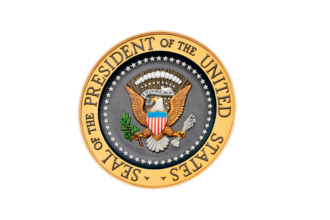Promising to carry out them on his first day of re-election, Donald Trump has declared broad tariff policies against China, Mexico, and Canada. Focusing primarily on the flow of fentanyl into the United States, the former president said that the action attempts to solve drug smuggling and illegal immigration.
- By "Time for Them to Pay a Very Big Price," what did Trump mean?
- How Does China Fit into the Fentanyl Crisis?
- What will the political and financial effects be?
- Can tariffs boost economic development?
- Are the tariffs a negotiating tool?
- Do the proposed tariffs violate USMCA?
- What worldwide consequences might these ideas have?
In a post on his Truth Social platform, Trump said that all items imported from Mexico and Canada would pay a 25% tariff. Apart from that, a 10% tariff would be aimed at Chinese goods until Beijing acts forcefully against synthetic opioid smuggling into the US.
By "Time for Them to Pay a Very Big Price," what did Trump mean?
Trump underlined that these policies would stay in effect until Mexico and Canada take decisive action to address drug trade and unlawful border crossing.
“Mexico and Canada have the absolute right and power to readily solve this long-simmering problem,” Trump said. “It’s time for them to pay a sizable cost!”
Should the tariffs be passed, US trade policy would show a notable change, possibly upsetting supply lines and damaging ties with three of the country’s biggest trading partners.
How Does China Fit into the Fentanyl Crisis?
Trump also charged China with not honouring agreements to punish those engaged in fentanyl sales with severe punishments, including the death sentence.
Rejecting these assertions, a Chinese embassy official in Washington said, “The idea of China knowingly allowing fentanyl precursors to flow into the United States runs completely counter to facts and reality.”
“China thinks trade and economic cooperation between China and the US benefits them. The spokesman said that no one will win a trade or tariff war.
Trump has also suggested renouncing China’s most preferred country trading status, which offers favourable terms for taxes and trade limitations.
What will the political and financial effects be?
The possible tariffs would significantly affect Mexico and Canada, which primarily depend on US commerce. Over 80% of Mexico’s exports in 2022 and almost 75% of Canada’s exports went to its southern neighbour.
Despite its history of trade conflicts with the US, China still sends roughly 15% of its exports to America. However, rising local government debt, poor consumer demand, and a crisis in the property market are driving China’s economic slowdown.
Can tariffs boost economic development?
Assuming they may boost income, protect American jobs, and spur development, Trump sees tariffs as a pillar of his economic agenda.
“These taxes are a cost to another country; they will not be a cost to you,” Trump said earlier. Most economists, however, reject this idea as tariffs generally cause disruptions to companies and higher consumer costs.
One analyst said, “It’s consistent with his promise that he made during the campaign to utilize tariffs as a weapon to accomplish many of his policy initiatives.”
Are the tariffs a negotiating tool?
Scott Bessent, Trump’s nominee for Treasury Secretary, suggested these threats would be a component of a more comprehensive negotiation approach.
“My overall impression is that he’s a free trader at the end of the day,” Bessent remarked in a previous interview. It escalates to de-escalate.
Similar strategies were utilized by Trump in his last term, most notably with China, regularly putting pressure using tariffs and other economic penalties before renegotiating agreements.
Do the proposed tariffs violate USMCA?
Trump signed into law the US-Mexico-Canada Agreement (USMCA), which would seem to be broken by his planned tariffs on Mexico and Canada. The accord promises duty-free trade among the three nations.
“Mexico is the United States’ top trade partner, and the USMCA provides a framework of certainty for national and international investors,” Mexico’s finance ministry defended its trade relationship with the US.
Following his tariff threat, Trump allegedly spoke with Canadian Prime Minister Justin Trudeau on trade policies and border security, underscoring his plan’s urgent diplomatic consequences.
What worldwide consequences might these ideas have?
Rising tensions have resulted in criticism of the suggested policies from politicians and international trade experts. Analysts caution that Such tariffs might aggravate existing economic problems and sour ties with important partners.
With China vulnerable economically, Mexico and Canada depending on US trade, and a domestic fentanyl epidemic getting more severe, Trump’s ideas might have a worldwide impact. Whether these dangers reflect actual policy or a high-stakes negotiation tactic is unclear.








